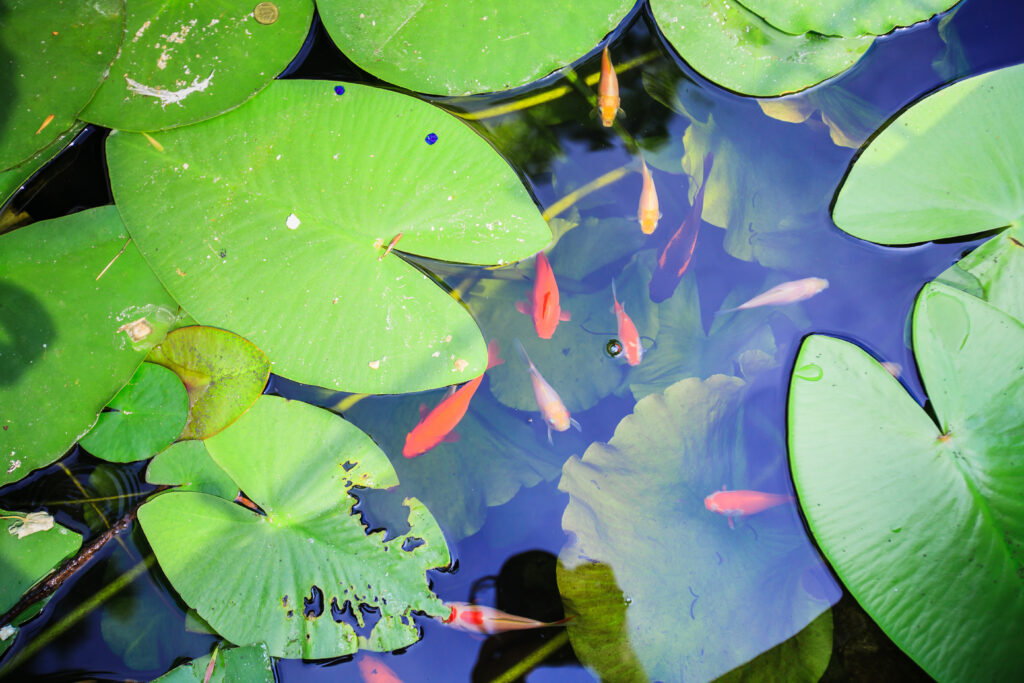During the summer of 2022, I had the chance to live in the Chicago Suburbs of Illinois due to my exchange program studies, and I noticed that even in the most urban areas there were natural ponds or bio lakes that were maintained by the city. Whether through filters or just aquatic plants, those small lakes were a beautiful sight to see and attracted a lot of wildlife as well as the local communities for picnics or just a relaxing walk in the park.
What is a biolake?
Biolakes, or natural swimming pools, are engineered aquatic systems, usually by experts, that use native plants and microorganisms for purification and natural water filtration, by not using harmful chemicals that are not particularly good for ecosystems. I believe that in Kosovo, particularly in its capital, Pristina, the use of biolakes could help with environmental, social, and economic benefits as well. There are multiple benefits for both the people and nature in utilizing biolakes in Pristina, but other parts of Kosovo as well.
Enhancing Urban Biodiversity
Pristina has faced environmental challenges of not having green areas as well as water pollution usually by garbage but as well as discharges. Introducing biolakes in urban areas and parks will offer habitats for various native plant species as well as animals, promoting biodiversity and contributing to a more balanced ecosystem and its restoration. Natural habitats play an efficient role as biodiversity indicators, supporting species conservation in urban areas. Having biolakes and habitat that comes with it is really important considering the fact that most freshwater biodiversity is affected by climate change factors as well as habitat degradation.
Biolakes can solve these challenges by offering sanctuary for native aquatic organisms in the Balkans, specifically in Prishtina, and reduce the use of water purification chemicals that harm ecosystems.
Providing Recreational Spaces
Pristina’s Gërmia Swimming Pool is a very popular open-air freshwater facility. I and my friends visit it often during summer after work, and it is really relaxing. It is a model for including water-based recreation into urban places. By transitioning such pools to biolakes or creating new ones, Prishtina’s citizens can enjoy chemical-free swimming in balance with nature and biodiversity. Although natural pools require specific maintenance, we have a lot of young professionals who are STEM students such as Ecology, Biology or Urban Infrastructure that can help apply their innovative knowledge, thus creating more jobs as well. Natural pools also offer a lot of significant aesthetic and health benefits. Although I am not a professional, last summer, I was able to create a small natural pond with native water plants from my hometown’s streams. It was a relaxing sight and it attracted a lot of bird wildlife as well. During hot summer days it offered a drinking water source for birds in my area.
Addressing Environmental Concerns
In Prishtina, biolakes, functioning as natural water systems, can improve the quality of water sources and environmental health in urban areas, dealing with local and regional conservation challenges. My friend and colleague Clirimtare Januzaj recently was part of a project in Buccino, Italy called Green Nexus. They have developed different practices in Permacultura to face the actual problems of the pedagogical garden in Buccino. ‘’We will invest more energy at the beginning to create them, but over time, these practices will save us time and money, creating a healthier, more natural and balanced ecosystem’’.
Conclusion
Integrating biolakes into Pristina’s urban landscape and parks can offer a sustainable approach to biodiversity conservation in a sanctuary form, water management, and a more green approach towards urban recreation. As Kosovo’s Government addresses its environmental challenges, biolakes and other biodiverse habitats can signify an innovative solution for creating greener, more livable urban environments, while supporting sustainable development in harmony with nature.
Sources:








